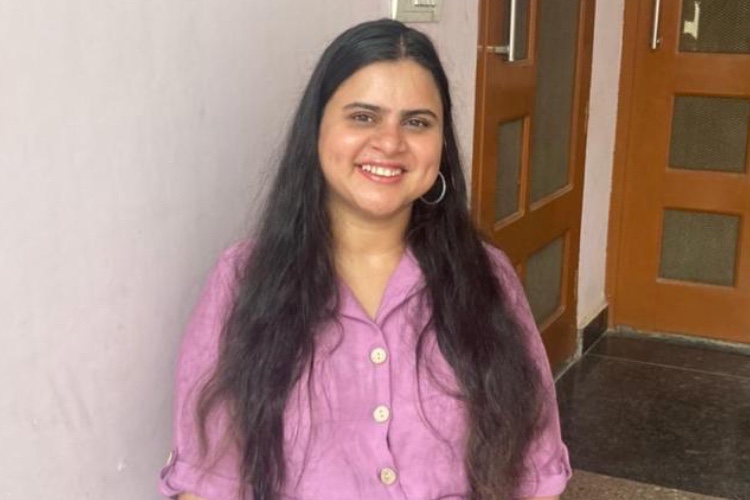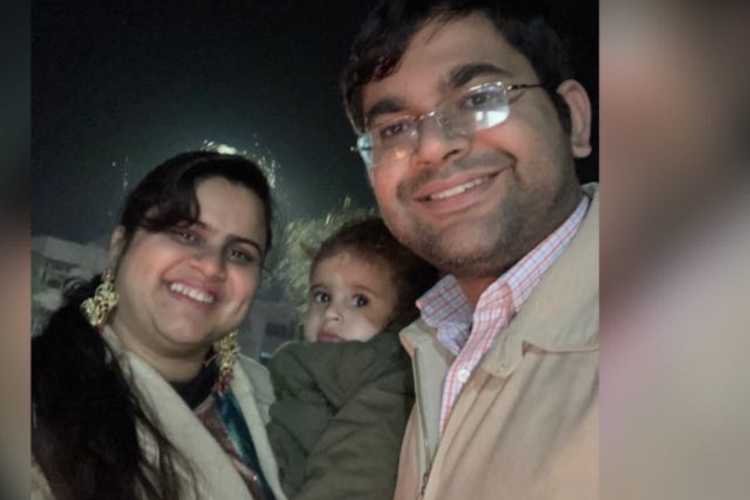
Shaista Fatima/New Delhi
The unending waves of Covid-19, the related restrictions, and other life changes have surely impacted human health – physical and mental. People across the world are facing depression, anxiety, cold sweats, palpitation; stutter as much as they are battling a fever, cough, anemia, breathlessness, and so on.
With myths and solutions about mental health available at the click of the mouse in the omniscient "google search", Awaz-the Voice spoke with Dr. Palak Talwar, Assistant Professor, Department of Psychiatry at Maharaja Agrasen Medical College (MAMC), Agroha, Hisar (Haryana). Dr. Talwar is an alumnus of KMC, Manipal, and has an MD in Psychiatry from JJMMC, Davangere. Excerpts from the interview:
What is mental health in the eyes of a psychologist?
It is a holistic term that involves the complete well-being of an individual. Being mentally healthy means that you are well adjusted, can realize your absolute potential, can handle the day-to-day stress of life, and have meaningful interpersonal relationships. The absence of disease is not the same as being mentally healthy at the same time happiness is also not a necessity for mental health.
What are the most common mistakes people make while dealing with stressful situations?
The most common is the one where the patients or anyone, in general, starts letting oneself drown in the negativity and the situation - objectivity is one's friend in any stressful situation in life. Overindulging in unhealthy coping behaviour like binge-eating, substance use, etc is indeed harmful. A healthy mind lives in a healthy body, taking care of your body is essential. Feeling guilty is completely humane; one is allowed to feel bad - analyse the situation and accept the feelings, do not be proactive- one needs to plan how to ameliorate the situation.
In the times of Covid, how would you, as a Doctor, suggest your patients take things, from lockdown to disappointments to failures?
The need of the hour is to balance and prioritize. If someone is unwell then take a few days off, work on your health first, both physical and mental. The pandemic has brought up a lot of the good as well as bad elements in society. However, there is more good than bad. We are all in this together and every man, woman, and child must do their part but after this phase is over. Do not let this feeling pass away. We all are here fighting our own battles but we are all in this together. Life never has any obligations to fulfill our expectations so adaptability is always our friend and so is seizing the day. Take each experience as a new adventure, a new lesson, and always let there be hope.
What are the most common problems that you face while treating patients?
The most difficult part about working as a psychiatrist in COVID times has been the physical distance and masking which prevents the human touch. Our practice of medicine has changed drastically since the pandemic started and things that we took for granted like seeing our patients face to face have become constrained due to safety concerns. Even when we are seeing them in person we are covered in masks and protective equipment and so are our patients so much so that any meaningful interaction is not possible. Moreover, the uncertainty of this disease has impacted the mental health of both the doctors and the patients. I cannot effectively reassure someone when I know so little. The unpredictability and novelty of the disease is huge problem.
 Dr.Palak Talwar with her husband and son
Dr.Palak Talwar with her husband and son
What has been the ratio of patients in terms of elders and kids?
As regards psychological symptoms, the elderly have more experience of life and also resilience and they are coping much better than the younger generations. Children however have been the worst affected even though the effect is not yet apparent but babies born in Covid times are behind in their social quotients than their peers in other years because of low or no social interaction. Anxiety and depression in adolescents and pre-pubescent are at an all-time high. Obsessive Compulsion Disorder (OCD) rates are soaring across all age groups.
How has the pattern evolved or changed during the three waves?
In my personal experience, I would say that the second wave was most deadly. That is not to say that the third wave is not risky. The SARS Cov-2 virus is rapidly shifting and new variants are coming up every few weeks and its symptomatology is also shifting. The Omicron variant is mimicking common cough and cold. The psychological impact of the disease is long-term while the panic associated with the disease has come down, the long-term effects of social isolation can be seen in the form of increasing rates of depression and anxiety. Moreover, almost everyone has lost at least one of their loved ones to this disease leading to a lot of grief and bereavement. There have been financial uncertainties and difficulties, economic slowdown, and other privations so a lot of adjustment problems have come up.
What is the ground report of those affected?
Currently, a lot of people are suffering from mainly mild and moderate symptoms and are being managed on an OPD basis. Mortality rates in hospitals are high because most of the patients requiring admission have co-morbidities and their health deteriorates very quickly.
Are there any therapies that patients can go through while ailing?
The patients suffering from the COVID are being screened and counseled regularly in our hospital. Teletherapy and group therapy are our friends in this situation. We focus on providing updated and relevant info to our patients and their families. We also update patients about their treatment plans and prognosis. We give supportive sessions for ameliorating their concerns and fears. So, patients can reach out if they feel they are not feeling like themselves or facing difficulties. However, the therapies are based on individual needs.
What is a single mantra that you would recommend for acceptance (of the current situation)?
We have an abundance of many things around us but still, we keep running after that one unattainable entity and it may end up hurting us maybe, but it is this "perfect" concept that makes us go beyond our capabilities. "Good enough" is also satisfactory; accept it first then maybe you can work upon it and make it better. See, there's always room for development but in a synchronized manner. The mantra for acceptance is just that doesn’t make the concept of a perfect life the cornerstone of your being.
Do you have a single experience that has changed your life forever?
Motherhood has changed me drastically. Taking care of your child is one of the most difficult and emotionally exhausting tasks but it is also immensely rewarding. These uncertain times have made me even more worried as a mother but I am all the more grateful to god for my son.
